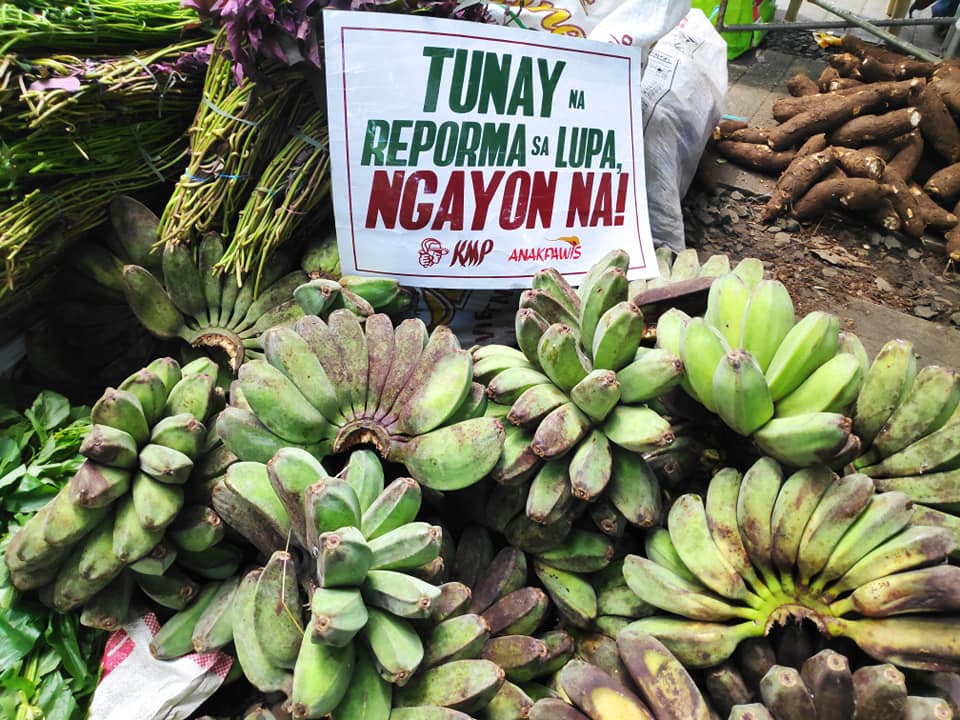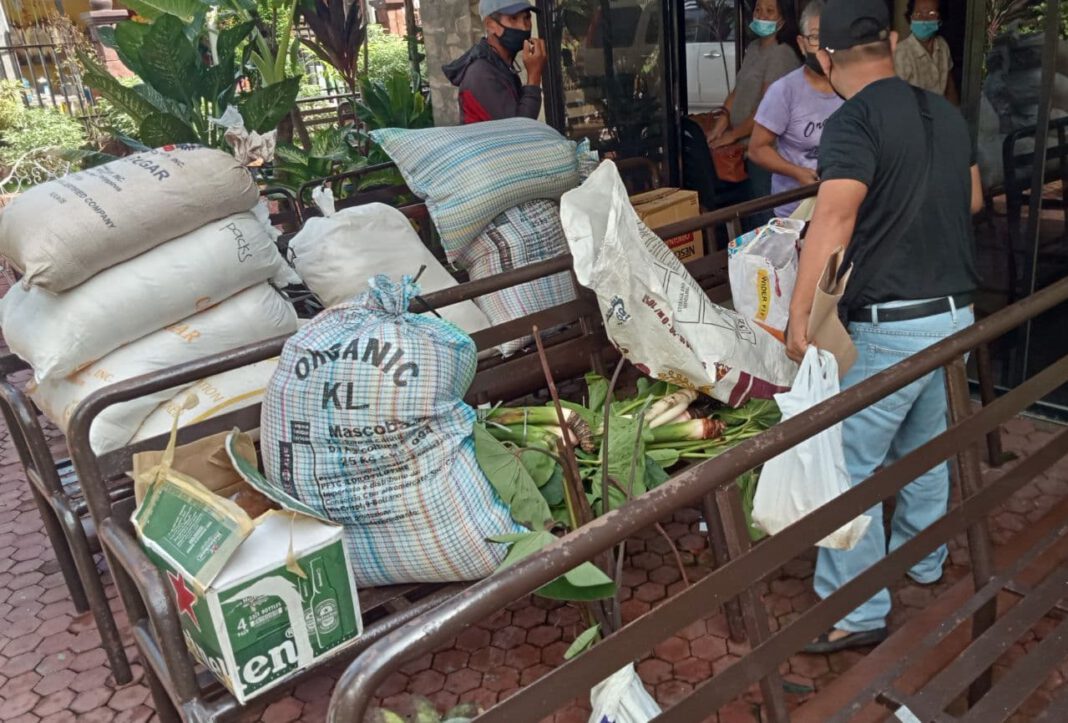While ‘World Hunger Day’ signified the state of food access on ‘World Food Day’ yesterday, Agroecology X spokesperson Marlon Gueta said every day is always ‘Hunger Day’, most especially for ordinary market-goers.
“Food for all” is the primary aim of the one-day-only Sunday Market on October 17, dubbed Agroecology Fair, held at the Bantayog ng mga Bayani in Quezon City.
The initiative also sought to strengthen local food production and gather support for the sale of farmers’ products.
The said Sunday Market is part of the Salu-Salo National Food Systems Summit.
Vegetable and organic rice farmers from Bulacan and Nueva Ecija along with various progressive groups were the main pop-up stalls of the Sunday market established.
There were also farmers from the Bagsakan Online Farmers Market on Facebook that sold leafy vegetables, eggplant, string beans, papaya, bamboo shoots, okra and root crops.
“Why import so much when we can produce food locally in abundance? Filipino farmers are capable of producing and supplying our food needs. They only needed support services and production support,’ said Gueta, further noting that one in four of the country’s food is imported.
Four in 10 Filipinos experience moderate to severe food insecurity since 2018 until 2020, as reported by the United Nations.
Gueta said part of this would be the effect of neoliberal policies like Rice Tariffication Law (RTL). He said the RTL implementation only destroyed Philippine agriculture and the livelihood of farmers.
Fair for a cause
Right to food is deeply connected, rooted even, to people’s struggles for their basic interests.
“Ang gusto namin ay lupa para sa mga magsasaka at pagkain para sa lahat. Ayaw namin ng imported na gulay galing sa China,” said Cecilia Rapiz of Alyansa ng Magbubukid sa Bulacan.
[We want land for the farmers, food for all. We don’t want imported vegetables from China.]
Agroecologoy is similar to the the practice of ‘bungkalan’ (collective land tilling), a social movement which advances land reform and food sovereignty with the practice of organic and sustainable agriculture. At its core, agroecology supports sustainability and development on agricultural production to beef up transformation on farming practices and food systems.
Initiatives like the Agroecology Fair stressed the need to ‘to stand’ and ‘to struggle’ as well as ‘to support’ local products amid inundation of imported products that stunted local agriculture due the decades-long and ever-increasing practices of trade liberalization.
Gueta said that consumers have roles to play for sustainable food production and promotion of local agricultural products. This is through solidarity with local farmers and producers by means of direct procurement on products and at the same time would help them raise for their livable wage. This can also be done through standing and struggling with them in their campaigns for land, livelihood, and life.
In addition, Agroecology X along with various groups demanded the following:
- End food liberalization and foreign domination
- Implement genuine land reform
- Uphold fair price and wages
- Strengthen Filipino agriculture and develop industries in the countryside and throughout the country
- Fund Filipino foods
- Implement adequate and immediate support during a calamity disaster
- Promote pro-peasant research and development
- Promote the democratic rights of the people






























